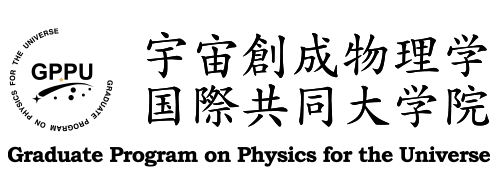GPPU Seminar
QCD nonrelativistic effective field theories
Nora Brambilla
(Technische Universität München)
Date
10:00-12:00, June 14th, 2019Place
Room 745, Science Complex B (H-03) mapAbstract
Quantum Chromodynamics (QCD) is the sector of the Standard Model of particle physics that describes the strong interaction, deceptively simple to formulate but notoriously difficult to solve. Heavy quarkonium is a multiscale system that probes the different energy regimes of QCD, from the high-energy region, where an expansion in the coupling constant is possible and precision studies may be done, to the low-energy region, dominated by confinement and the many manifestations of the nonperturbative strong dynamics. Properties of production and absorption of quarkonium in a nuclear medium are also crucial for the study of QCD at high density and temperature. On the theoretical side, the construction of new nonrelativistic effective field theories for quarkonium has recently revolutionized the field providing both a conceptual framework and a powerful calculational tool. The effective field theory approach provides a clean separation and a systematic treatment of all the individual scales relevant to the system, thereby decoupling the strongly coupled dynamics and pinpointing the relevant degrees of freedom. In this lecture I will present an introduction to the nonrelativistic effective field theories of QCD called Nonrelativistic QCD (NRQCD) and potential nonrelativistic QCD (pNRQCD) and review their impact in the field and in the interpretation of the data collected at accelerator experiments at LHC, B and tau-charm factories.Point
GSP 1Contact: Yusuke Tanimura (tanimura [at] nucl.phys.tohoku.ac.jp)
